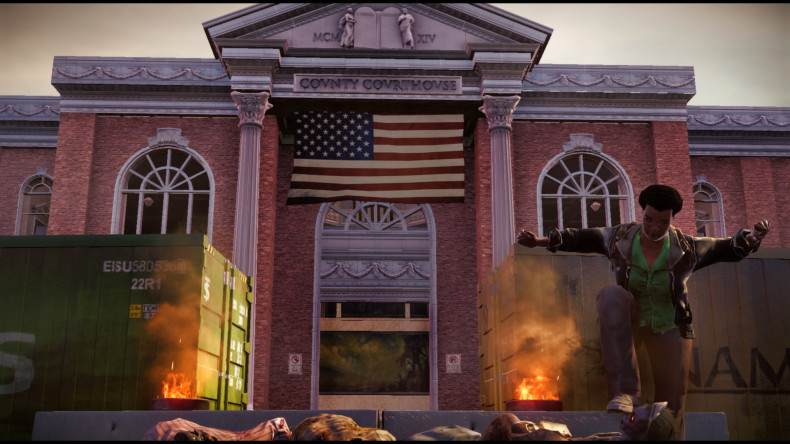Recently, LEGO rejected a LEGO Ideas submission featuring the women of the Supreme Court, citing LEGO’s rule of not engaging with current politics. On one hand, I see their point; I don’t really want political LEGO sets, and I can certainly think of more than a few politicians that I really don’t want in minifig form. On the other hand, LEGO has been the subject of a lot of criticism over gender issues, so I found it hard to just nod along and accept their argument about politics.
Last year, they released the LEGO Ideas Research Institute, a set featuring female scientists. I hesitate to say the set was released in response to the criticism because I think that takes away from designer Ellen Kooijman’s accomplishment. But, I also hesitate to say the set wasn’t in response to criticism, in part because of the set’s path to becoming a retail set. For those who may be unfamiliar with the process, LEGO Ideas is a program for users to submit their own designs for LEGO sets, which are then voted on. Once the set gets enough votes, it moves to a LEGO review where the company makes a decision to move forward with the set (or not) based on a variety of factors, such as playability, fit with the LEGO brand, safety, etc. They review the sets quarterly, make a decision, and move forward with the winners. The Research Institute went through two review cycles, although, I’m not clear why it needed two cycles. Also, LEGO failed to convince me they take the gender criticism seriously when they referred to Ellen Kooijman as a real-life scientist in the product’s description. Nevertheless, the Research Institute is a great set, and I’ve been looking forward to more like it.
For me, these sets reflect the current gender debates and issues, both debates about girls being able to visualize themselves in certain careers and debates about representation in general. I’ve written before about the lack of recognition female LEGO designers often get, so I’m happy to see Maia Weinstock recognized by the community, if not by LEGO. But, I would like to see more transparency on LEGO’s part. Weinstock writes in her open letter that her response from LEGO was non-specific. In LEGO’s statement on their decision to reject the Supreme Court set, they wrote, “Cases in which the Lego brand are used in this manner have historical context. Any contemporary political association of the Lego brand is unofficial content that is generated by enthusiasts and not endorsed by the Lego Group.” Unofficial content is often generated by LEGO enthusiasts, and is, of course, one of the best things about LEGO: we can all build pretty much anything, and Adult Fan’s of LEGO (AFOLs) have been doing just that for quite a while. LEGO hasn’t always viewed these creations favorably, particularly those that don’t fit with their desired brand image, such as overly violent or explicit designs. In recent years, however, LEGO has become more accepting of, even if not endorsing, the designs.
 Maia Weinstock decided to appeal the decision in an open letter, in which she outlines her belief that the set is important for both girls and boys. In her letter, she references “If you can’t see it, you can’t be it,” a sentiment with growing traction, and one that is close to my heart. She also points to the already existing male supreme court justice minifig, which is pretty damning, in my opinion. I’m not sure how a male supreme court figure is not political, but female minifigs are political.
Maia Weinstock decided to appeal the decision in an open letter, in which she outlines her belief that the set is important for both girls and boys. In her letter, she references “If you can’t see it, you can’t be it,” a sentiment with growing traction, and one that is close to my heart. She also points to the already existing male supreme court justice minifig, which is pretty damning, in my opinion. I’m not sure how a male supreme court figure is not political, but female minifigs are political.
Weinstock goes on to echo some of my own thoughts in her questioning of the definition of “politics,” and pointing to the multiple examples of LEGO sets that could be considered political. She references the Statue of Liberty in her letter, but LEGO also has a White House set, etc. I personally also questioned the use of “politics” in the contrast of the rejected Supreme Court set and the official Research Institute set. Weinstock writes the most commonly used definition of politics is “debates between individuals and parties having or hoping to achieve political power.” In that sense, I would argue the Research Institute is also a political set, representing the continued fight for gender equality.
I still can’t decide how I feel about the rejection of the Supreme Court set, but I would like more information/transparency on LEGO’s part. LEGO may very well be uninterested in engaging with current politics. It’s unlikely they feel the supreme court set wouldn’t sell, given how popular the Research, although one commenter I read made the very good point that it might not have wide appeal outside the US, which LEGO has to consider. But, again, on the one hand, it makes sense to say the set might be US-centric, but on the other hand, it’s still hard to just nod along because the market is there; the Research Institute sold out fast. Twice.




